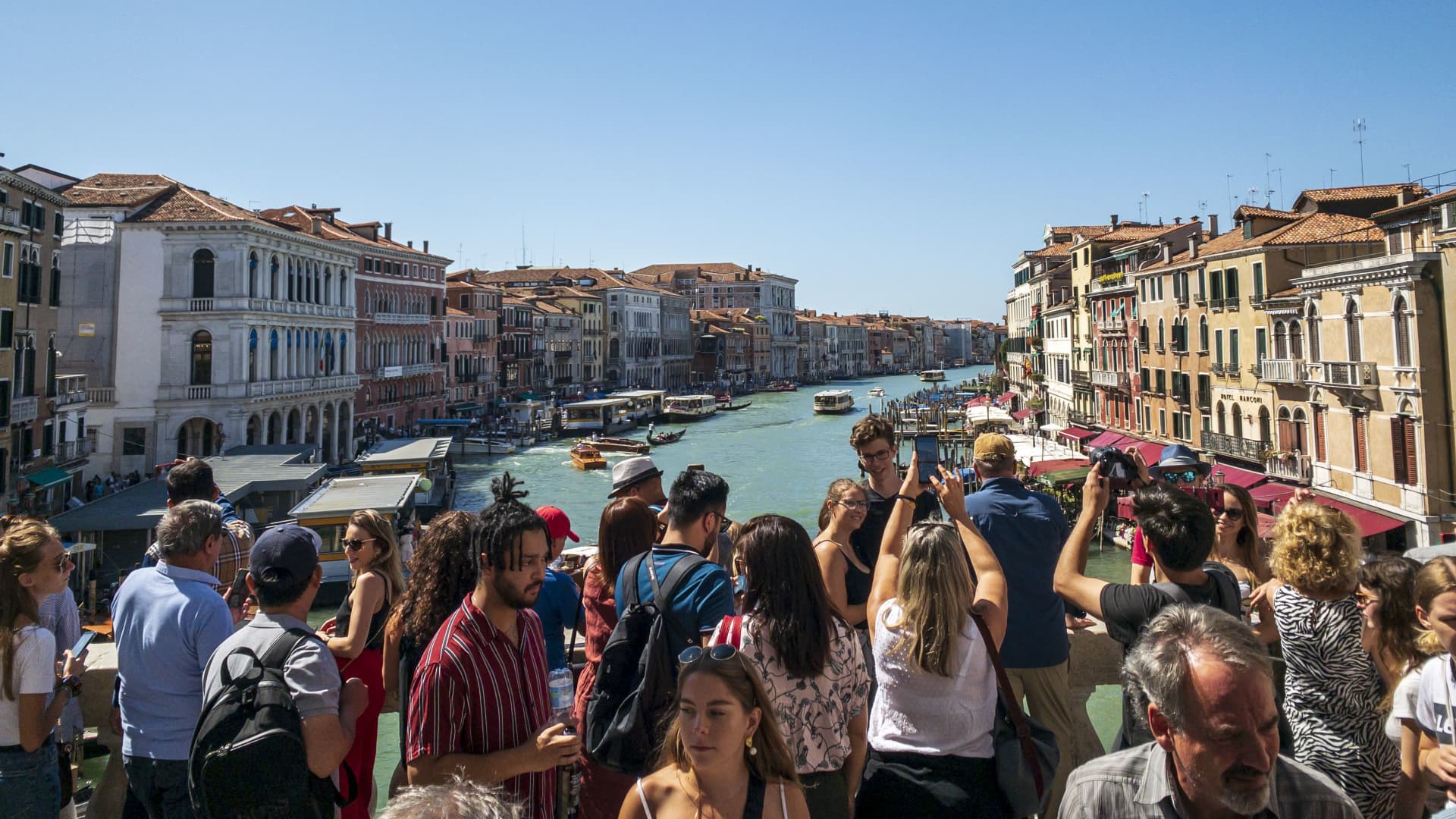Many travelers are accustomed to nightly tourism taxes tacked on to their hotel bills.
But daytime taxes are a new ask.
Venice’s city council on Tuesday approved a long-awaited regulation to tax day visitors 5 euros ($5.38) to visit the city.
The new tax will be implemented over 30 non-consecutive days in 2024, falling on long weekends in the spring and regular weekends in the summer, according to an announcement published Tuesday on the city’s website.
Exact dates will be announced in the coming weeks, it said.
Who has to pay the fee
In general, the fee will apply to all day tourists over the age of 14.
Overnight travelers are exempt, though they’re subject to a separate tourist tax implemented in 2011. This tax varies by travel season, accommodation type and location, according to the city’s website — and is usually between 1 and 5 euros per person per night, for the first five nights of a stay.
Why is Venice taxing day visitors?
The new tax is an attempt to “protect the city from mass tourism,” Luigi Brugnaro, Venice’s mayor, posted on X, formerly known as Twitter.
“We will carry out an experiment with great humility and will try not to harm anyone,” he said, according to a translation of the post.
Venice has toyed with the idea of taxing day visitors for years, as one of several measures to curb overtourism in the city — which locals have long blamed for driving up prices and transforming the city into a souvenir-laden theme park of sorts.
Residents, specifically the estimated 50,000 who live in the city’s historic area, are far outnumbered by the some 5.5 million who visited the city in 2019 — many of whom disembark from cruise ships by the thousands to take photographs of Venice’s famous canals and city squares.
So-called “hit and run” tourists represent nearly three out of every four visitors to Venice, yet they contribute less than 20% to its tourism economy, according to the Belgium-based news network Euronews.
Will it work?
According to research, taxes and fines alone are not sufficient to tackle overtourism, said Tatyana Tsukanova, a research associate at EHL Hospitality Business School in Lausanne, Switzerland.
The city of Venice currently fines visitors who eat or drink on the ground, sit on monuments and bridges, or swim in its canals, according to the city’s website.
Tsukanova cited Bhutan, which reopened in 2022 with a $200 daily tourist fee imposed to attract “high value, low volume” tourists. Earlier this summer, the country halved the fee to spur more travelers to visit.
Crowds by the Grand Canal during the Carnival of Venice on Feb. 11, 2023.
Miguel Medina | Afp | Getty Images
While Bhutan’s tax may have worked a little too well, Venice’s tax may not be enough to disincentivize travelers who have come from afar to see the ancient city.
Kumar Vinnakota, a lawyer in Dallas, Texas, said he wouldn’t think twice about paying 5 euros to visit Venice.
“Most cities around the world have tourist taxes or hotel taxes paid by tourists anyway,” he said.
Denial of responsibility! Vigour Times is an automatic aggregator of Global media. In each content, the hyperlink to the primary source is specified. All trademarks belong to their rightful owners, and all materials to their authors. For any complaint, please reach us at – [email protected]. We will take necessary action within 24 hours.


